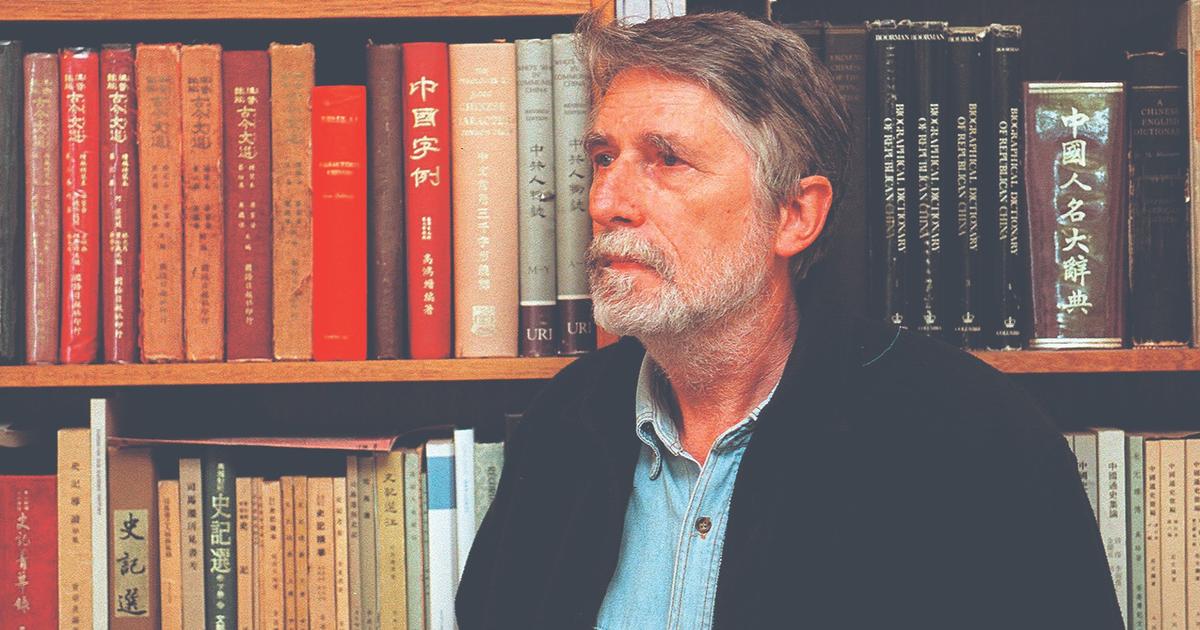When a new Plutarch one day writes a Life of Illustrious Men in the 20th Century, he must not neglect the exemplary existence of Simon Leys, writer, essayist, literary critic, translator, art historian and Belgian sinologist literally driven out of Europe for daring to denounce the bloody reality of the Cultural Revolution.
It was in 1971, in a book entitled
The New Clothes of Chairman Mao
, and in
Chinese Shadows
, published in 1974, two years after a long stay as cultural attaché at the Belgian embassy in Beijing, which had just reopened.
Simon Leys, whose real name is Pierre Ryckmans, never saw China again after a final trip in 1973 and rarely returned to his native country.
In a libelle entitled
Pour Luxun (Lou Sin).
Response to Pierre Ryckmans (Simon Leys)
, published in 1975, French Maoist Michelle Loi revealed her real identity to the world - forbidding the Beijing authorities from pretending not to know who they were dealing with.
“
The very idea that an individual like Simon Leys could constantly wish to see China again, that he had established the dearest ties in that world, does not only seem incomprehensible to them, it is downright sacrilegious to them
,” he wrote. he.
To discover
TV tonight: our selection of the day
Opposed to worldly Maoism
Installed with his Chinese wife and their children in Australia since 1970, appointed professor at the University of Canberra, this author of around twenty books including a single novel,
The Death of Napoleon
, spent almost all of the four decades there remained to live until his death in 2014, reading, writing, translating, painting and sailing the blue waters of the Pacific aboard his sailboat.
Because Simon Leys is much more than China.
He is a truly honest man, a student of the fathers of the Catholic University of Louvain, straight from the Renaissance, in the best it gave to European civilization.
He is an art lover who has completely internalized his love of Chinese language, culture and people, much like those French, Flemish and Italian missionaries of the 17th and 18th centuries who were both Jesuits and Mandarins.
The great merit of
Simon Leys, the man who undressed Mao
, the documentary by Fabrice Gardel, is to make us feel the greatness of soul, the firmness of conscience and the openness of heart of a free and highly qualified writer who We cannot reduce it to just his fights against worldly Maoism which affected him greatly.
Seven years after the death of Mao Zedong and six years before the Tiananmen Square massacre, he nevertheless ended up victorious by knockout, on a Friday evening in May 1983, on the set of the show “Apostrophes”, by Bernard Pivot, facing the Italian maolater Maria Antonietta Macciocchi.
It's a treat to watch this sequence again in which Simon Leys holds the sword with the firmness of a musketeer and aims his opponent directly at the heart: "
Let idiots say stupid things, it's like apple trees that produce apples, it's in nature, it's normal.
»
Anti-totalitarian fight
After films devoted to Aron, Camus and Giono, while awaiting documentary portraits of George Orwell and Jean-François Revel, Fabrice Gardel has the gift of recalling, using archive images and interviews with witnesses of this crazy period (René Viénet, Pierre Haski, Franz-Olivier Giesbert), that the anti-totalitarian fight was as brutal as the battle of men.
Daughter of Patrick Nothomb, the Belgian diplomat who welcomed Pierre Ryckmans at the Beijing embassy in 1972, Amélie Nothomb evokes her struggles in a clear and uncompromising manner, as if she were holding her rapier.
It is true that she succeeded him in 2015 at the Royal Academy of French Language and Literature of Belgium.

